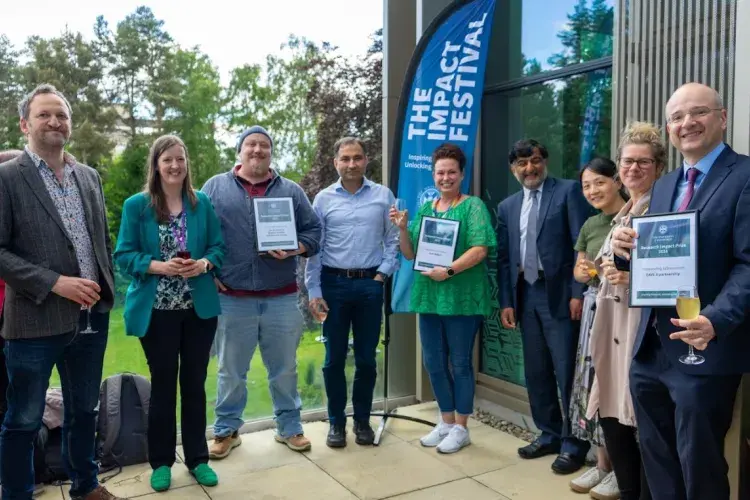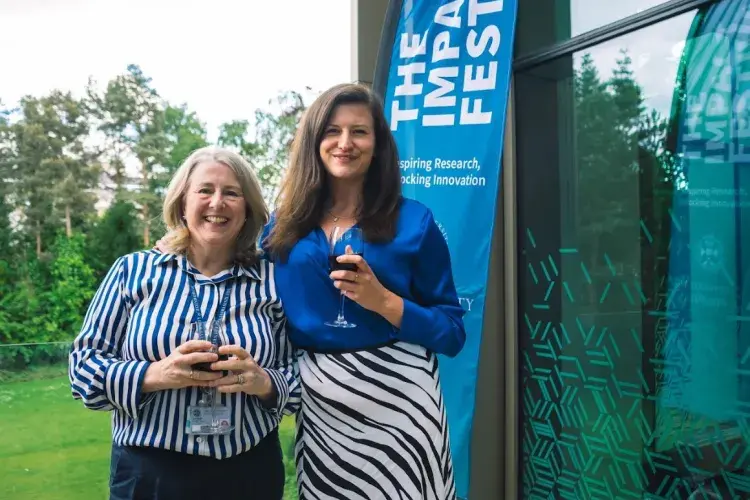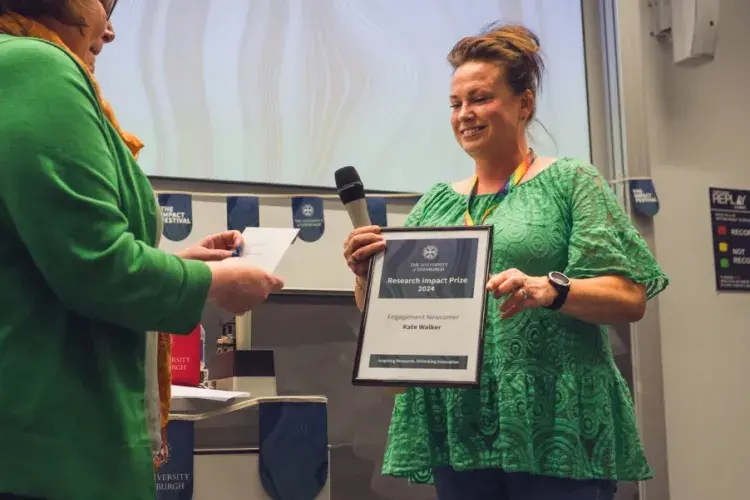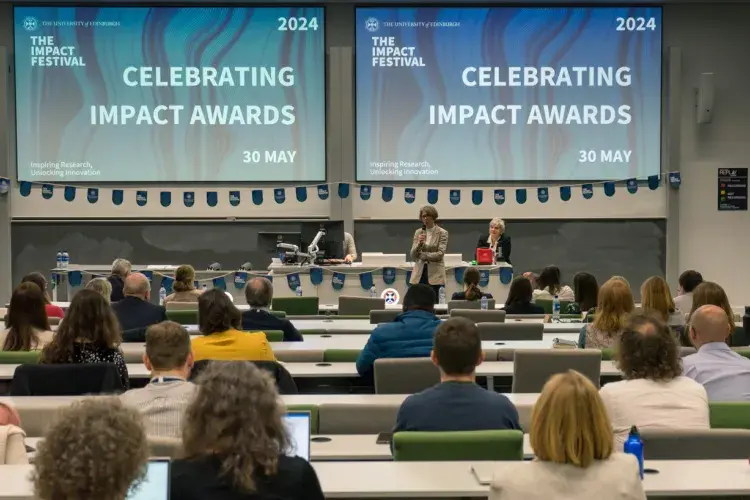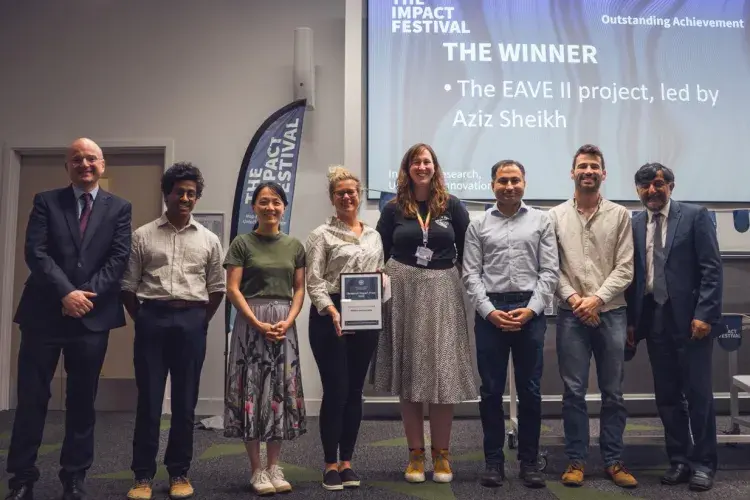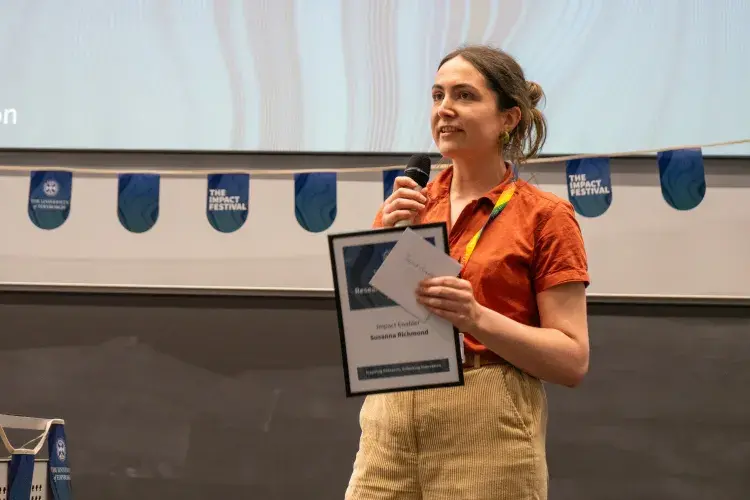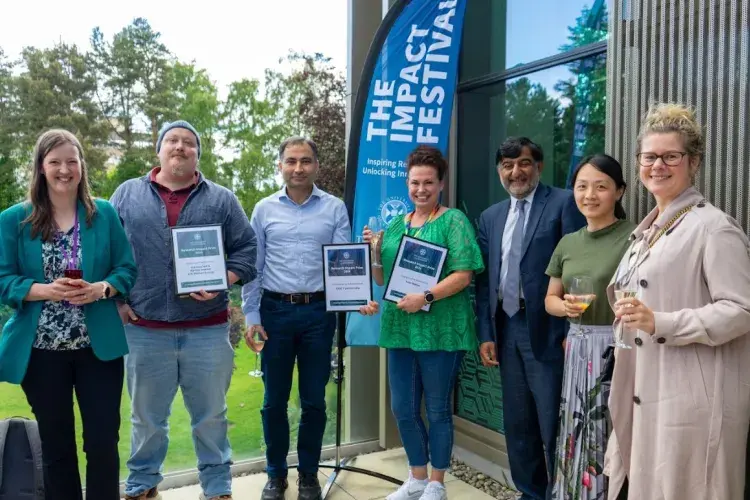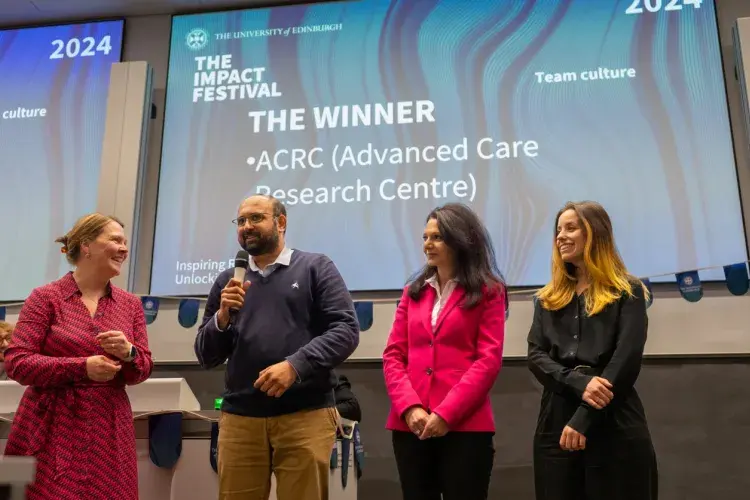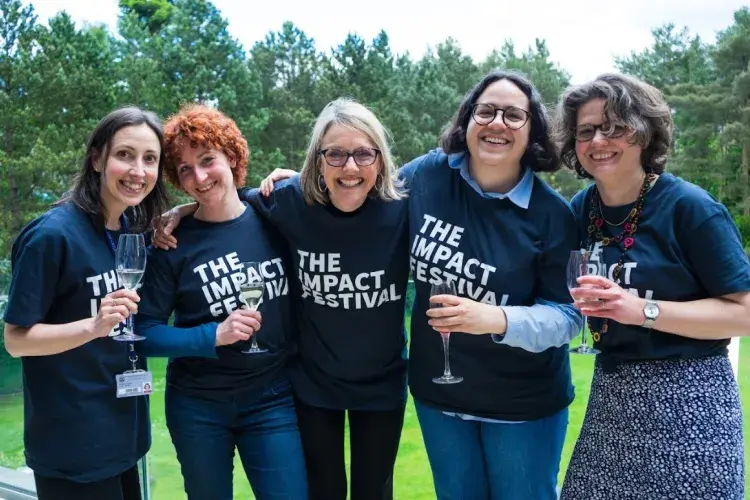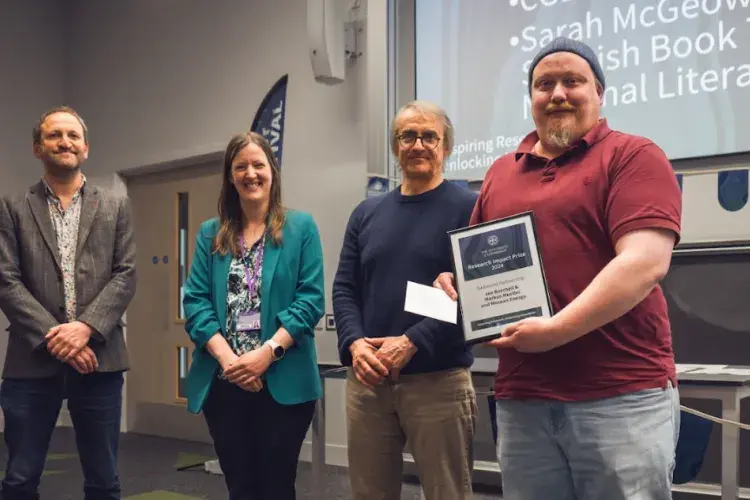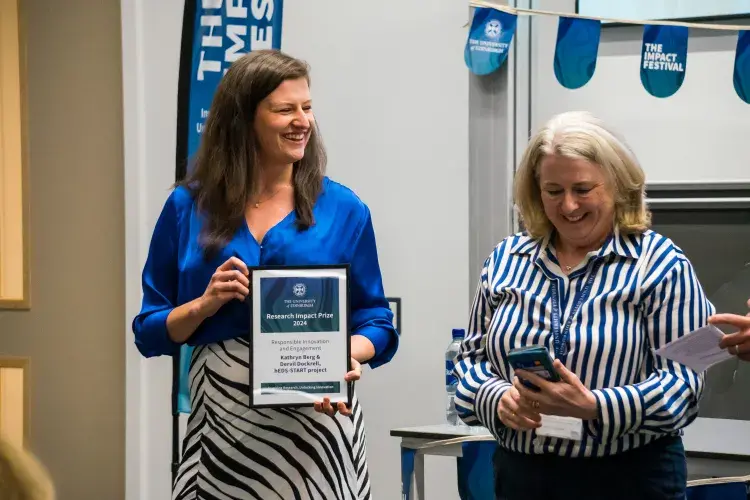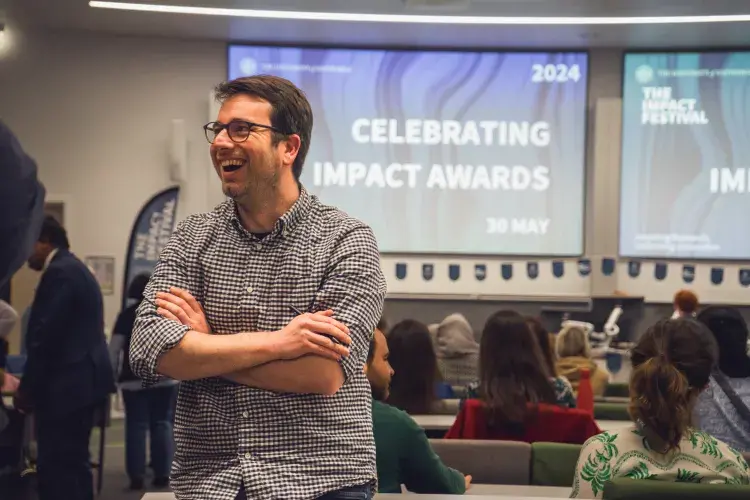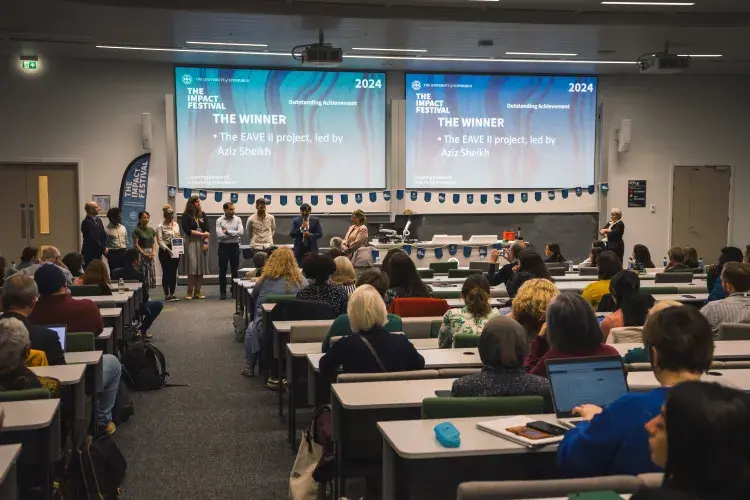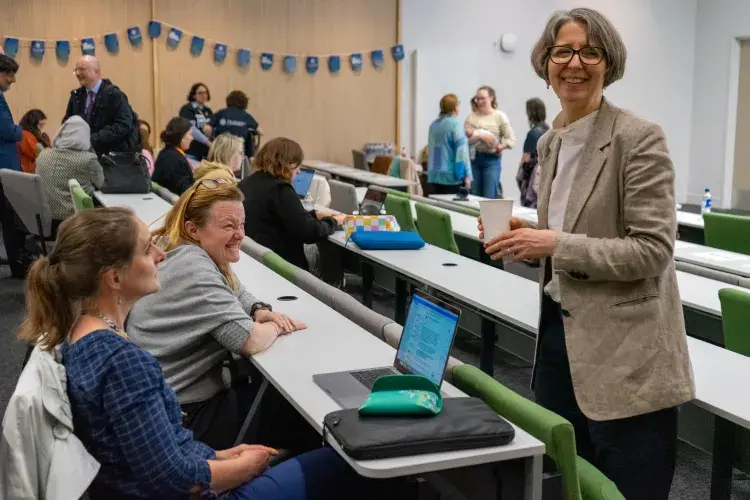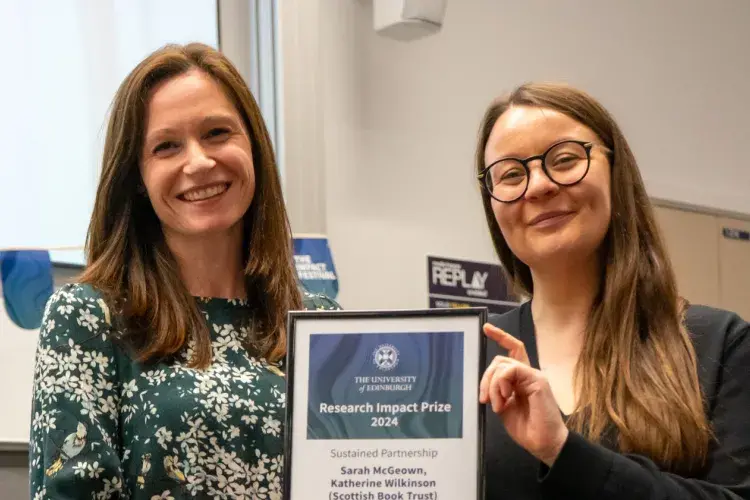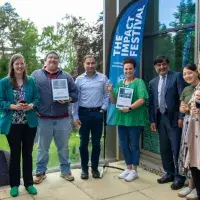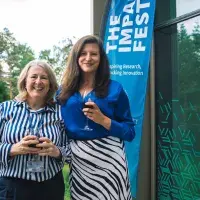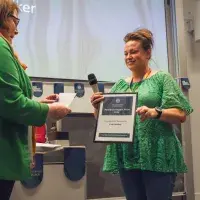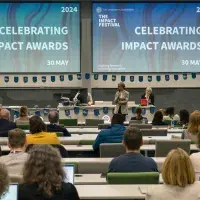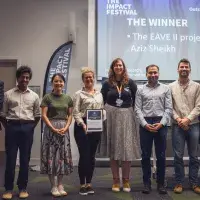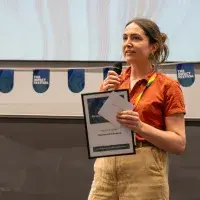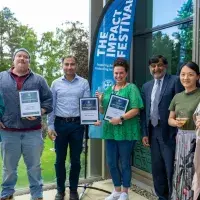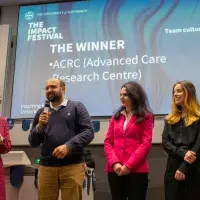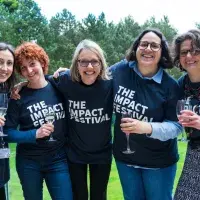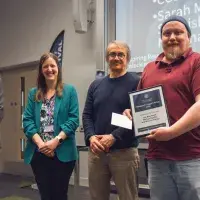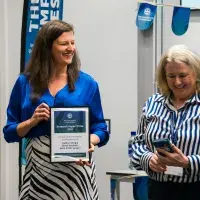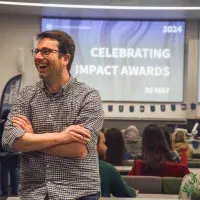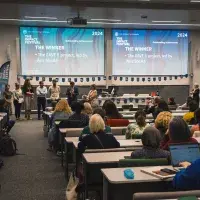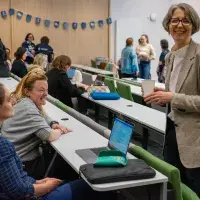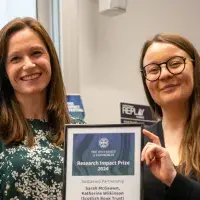Over the course of three days and 25 events, staff from across the University learned about their colleagues’ experiences engaging with industry, communities, policy-makers, the media, artists and practitioners to maximise the benefits of research.
The festival was brought to a close with a ‘Celebrating Impact’ event where researchers, teams and partnerships received prizes in recognition of their outstanding engagement and research impact activities.
The Impact Festival has highlighted some fantastic examples of how research is making a real difference in the world that we hope will inspire others to start or further their impact journey. Congratulations to all the winners and nominees for their outstanding efforts in the field of research impact and innovation.
Dr Anne-Sofie Laegran
Head of the Research Engagement and Impact team
The celebration event was hosted by broadcaster and comedian Susan Morrison in the Nucleus Building. Professor Christina Boswell, Vice-Principal for Research and Enterprise, welcomed over 150 attendees and prizes were presented by members of the panel that reviewed over 130 nominations across all award categories.
And the winners are… |
|---|
| The Team Culture Award went to The Advanced Care Research Centre (ACRC), comprising a highly interdisciplinary team that crosses a number of schools, centres and research fields that prioritise Public and Patient Involvement (PPI). The award recognises the ACRC’s dedication to building a truly interdisciplinary culture of collaboration, inclusivity, and shared commitment to improve the quality and sustainability of care provision in later life. |
The Sustained Partnership category was so closely contested that the review panel decided to jointly award the prize to:
These two long-lasting, impactful partnerships demonstrate the benefits of bringing together diverse knowledge and expertise to create change. |
The hEDS-START project team received the Responsible Engagement and Innovation Award. Kathryn Berg (Trial Manager) and Dervil Dockrell (Clinical Specialist Occupational Therapist) at the Centre for Genomic and Experimental Medicine have been capturing and sharing the lived experiences of people with hypermobile Ehlers-Danlos Syndrome (hEDS) and Hypermobile Spectrum Disorders (HSD) in the UK. Kathryn and Dervil have consciously and strategically worked hard to facilitate the inclusion of the lived experience of people in research by removing as many barriers as possible. The review panel was particularly impressed by the team’s approach to Equity, Diversity, and Inclusion and their detailed, thoughtful engagement process. |
| The Engagement Newcomer Award went to geneticist Dr Kate Walker, who is researching the causes of Heavy Menstrual Bleeding (HMB) as part of the HOPE project at the MRC Centre for Reproductive Health. Despite having no prior public engagement training or experience with media engagement, Kate took the opportunity to participate in a BBC 5Live livestream hosted by presenter Naga Munchetty. Her reel on period blood loss generated an amazing response on social media and led to a new BBC 5Live monthly phone-in feature dedicated to women’s health. This award recognises her willingness to experiment with new approaches to engagement and impact in raising public awareness. |
| The Impact Enabler Award went to Susanna Richmond, Impact Research Officer at the School of Physics and Astronomy. Susanna was instrumental to the success of nine impact case studies submitted to REF 2021 and is driving the School’s efforts to identify and document impact. The system she has created for collecting impact evidence at School level has informed how the College, and the University as a whole will store impact data. This award recognises her dedication to continuous improvement, which has benefited not only the School Physics and Astronomy, but has helped advance the development of impact culture in the entire University. |
An Outstanding Achievement Award was presented to Sir Aziz Sheikh, who is leading The Early Pandemic Evaluation and Enhanced Surveillance II (EAVE II) project involving academic institutions across Scotland and Public Health Scotland (PHS). The partnership, spanning over 10 years, has informed key policy and clinical decisions during the 2009-10 H1N1 (‘swine flu’) pandemic and the COVID-19 pandemic. Drawing on sustained collaborations with public bodies, research and expert groups, journalists, policymakers, and members of the public, this project has demonstrated an outstanding level of connectedness, tenacity and innovation. Image
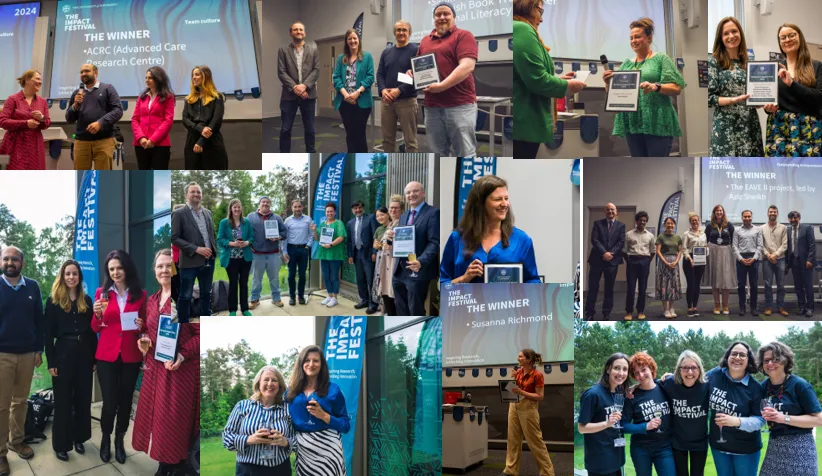
|


